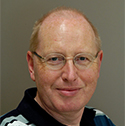Smoothing the Transition to MPS for Forensic Laboratories
- Advantages and disadvantages of using MPS in forensic laboratories
- Workflow and data analysis factors to consider when implementing MPS
Summary
Massively parallel sequencing (MPS) is gaining interest in the forensic community. MPS-based methods offer several advantages over CE methods: identification of sequence polymorphisms, better mixture deconvolution, the ability to analyze more loci and the ability to make all amplicons smaller. In this webinar, Dr. de Knijff will discuss considerations around implementation of MPS in the forensic laboratory.
Speaker

Dr. Peter de Knijff
Professor in Population Genetics and Evolution Genetics
Leiden University Medical Center
Peter de Knijff is full professor in population genetics and evolutionary genetics at the Leiden University Medical Center (LUMC). Since 1994 he has led the Forensic Laboratory for DNA Research at the LUMC. Together with Prof. Lutz Roewer of the Humbolt University in Berlin and Prof. Manfred Kayser of the Erasmus Medical Center, Rotterdam, he was responsible for the worldwide introduction of Y-chromosomal microsatellites for forensic genetic and population genetic applications.
Dr. de Knijff has been involved in many population genetic, evolutionary genetic and forensic genetic studies. His main research lines are the development and use of polymorphic markers on the human Y chromosome and fundamental population genetic and evolutionary genetics.
In December 2015, his lab was the first forensic laboratory worldwide to receive formal ISO 17025 accreditation to use MPS for forensic case-work. In addition, he is actively involved in explaining forensic science to the general public, students and criminal justice professionals. He does this by means of popular lectures, courses, contributions to books and journals written in Dutch, newspaper articles and interviews for radio. He also regularly appears in court as a forensic DNA expert.